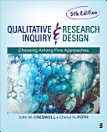Theses and Dissertations: A Guide to Planning, Research, and Writing, Edition 2
About this ebook
—Betty J. Alford, Chair of Secondary Education and Educational Leadership
Stephen F. Austin State University
"Graduate students will be in debt to professors Thomas and Brubaker for providing a long-overdue guide to the rite of passage known as theses and dissertations. This book is realistic, clear, and refreshingly sensitive to what students need to know."
—Seymour B. Sarason, Professor of Psychology Emeritus
Yale University
Take the anxiety out of preparing your thesis or dissertation!
This revised classic helps graduate students approach the thesis or dissertation writing process with confidence, offering updated references and new information on Internet searches, narrative summaries, plagiarism, and Internet publishing options. The authors help readers stay on track by providing checklists and multiple examples as they progress through five critical stages:
- Preparation
- Selecting research topics
- Collecting and organizing information
- Interpreting the results
- The final presentation
With thorough guidelines for evaluating research options, this indispensable resource helps make the writing process a satisfying and rewarding one!
About the author
R. Murray Thomas (Ph.D., Stanford University) is an emeritus professor at the University of California, Santa Barbara, where for three decades he taught educational psychology and directed the program in international education. He began his 50-year career in education as a high school teacher at Kamehameha Schools and Mid-Pacific Institute in Honolulu, then continued at the college level at San Francisco State University, the State University of New York (Brockport), and Pajajaran University in Indonesia before moving to Santa Barbara. His professional publications exceed 340, including 46 books for which he served as author, coauthor, or editor.
Dale L. Brubaker is Professor of Education at the University of North Carolina at Greensboro. He has also served on the faculties of the University of California, Santa Barbara, and the University of Wisconsin, Milwaukee. He received his doctorate in foundations of education from Michigan State University. He is the author or coauthor of numerous books on education and educational leadership, including CREATIVE CURRICULUM LEADERSHIP (Corwin), STAYING ON TRACK, (Corwin), and CREATIVE SURVIVAL IN EDUCATIONAL BUREAUCRACIES.







